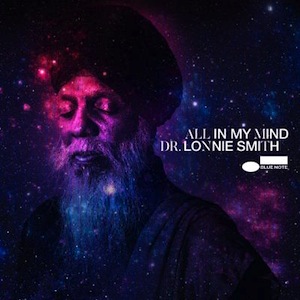Label: Dafnisonmusic, 2018
Personnel - Sam Neufeld: trumpet; Tom Kelly: alto and soprano saxophones; Sean Johnson: tenor saxophone; Nick Lamb: piano; Jon Dadurka: upright and electric bass; Johnathan Hulett: drums.
Transition, the debut album from Kairos Sextet - Sam Neufeld on trumpet, Tom Kelly on alto and soprano saxophones, Sean Johnson on tenor, Nick Lamb on piano, Jon Dadurka on upright and electric bass, and Johnathan Hulett on drums - homages the Cuban drummer Dafnis Prieto, their mentor and inspiration. The latter, who also served as executive producer, contributed with a composition, “Triangles and Circles”, which opens with a drum statement and develops to a glorious epiphany, reaching a finale with multiple horn trills and rhythmic punch. Another flagrant tune in which the collective captures the compositional style of Prieto is “Dafnison”, a waltz penned by Johnson.
Every single member of this band penned at least one tune for this work, which also contains an interesting reinvention of the standard "I Remember You". The arrangement by Kelly is fabulous, altering the traditional chord progression, favoring post-bop modulations, and still sticking to the most common swinging drive that normally characterizes the song.
Performed with vividness and carrying powerful rhythmic accents, the title track is a shape-shifting amalgam of rock and jazz with a tango-ish feel on the piano. The solos, embellished with horn fills, are attractive in language and suffused with abundant energy. By the end, there is a brief cacophonous passage before Hulett's adroit metrics are demonstrated.
Another pressurized song is Johnson’s “(No) Time to Spare”, inspired by saxophonist Brice Winston. The band actually spares quite some time stretching this one out, generating enough steam to keep you warm. While Johnson speaks loud and unreservedly, Kelly, catching the tail of his solo, delivers irresistible hooks, focusing on immediate rhythmic figures.
Dadurka’s “On and On” starts with an electric bass ostinato designed on an upper register. Unhurried unisons lead to trumpet melodies that, officially opening the improvisational section, stir emotions while sounding pleasant to the ear.
The sextet proves to have that desirable rapport that allows them to scintillate with creativity. Each individual statement feels hand-in-glove with the written material and Prieto has all the reasons to be flattered and proud of this band.
Grade B+
Favorite Tracks:
01 - Transition ► 03 - (No) Time To Spare ► 07 - I Remember You








































